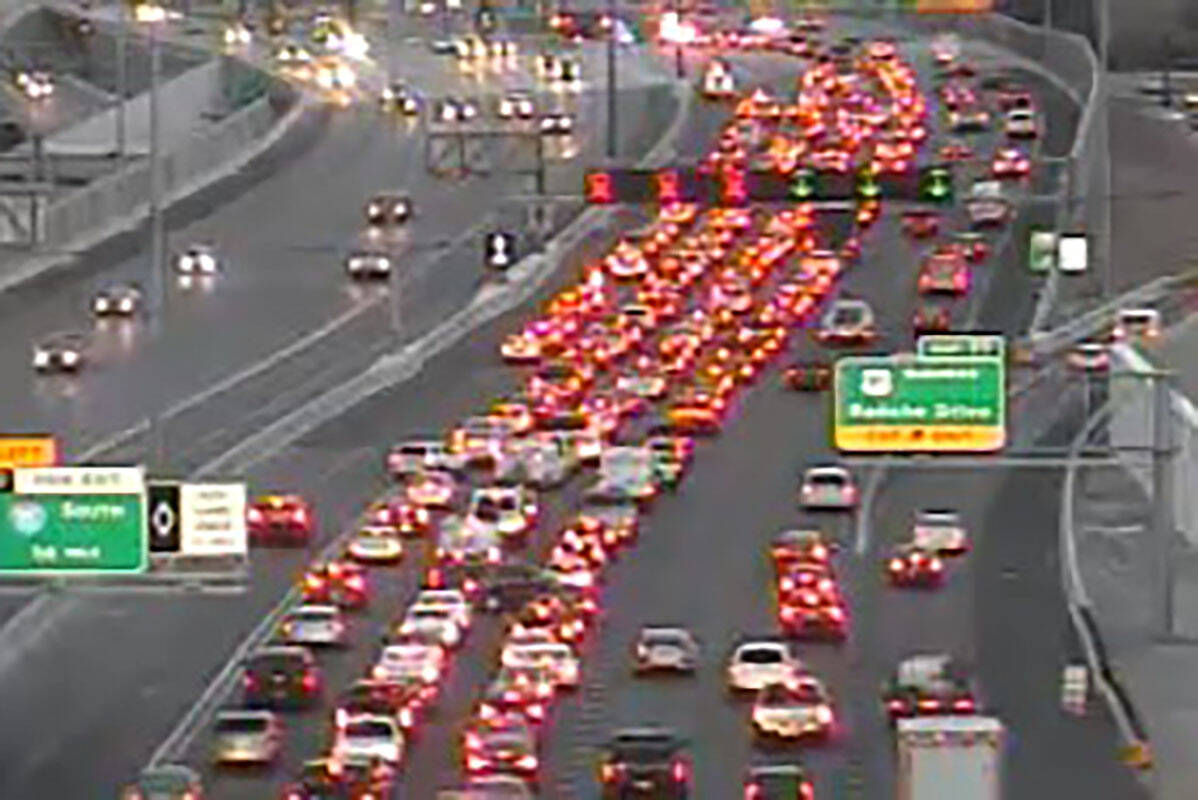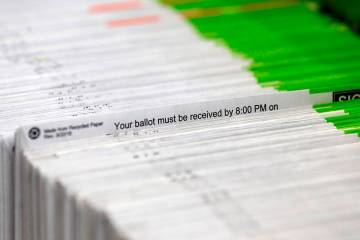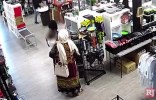EDITORIAL: Keep traffic cameras focused on traffic
The idea of using Las Vegas traffic cameras to help solve crimes sounds like an idea from a police state.
Recently, Las Vegas police Lt. Ray Spencer floated the idea of storing footage from traffic cameras. The Regional Transportation Commission runs the cameras, which serve an important public purpose. A live-look at traffic conditions helps government workers monitor traffic flows and find accidents, which keep traffic moving. Las Vegas needs all the help it can get in that area.
Those cameras don’t record data. They are livestreams of current conditions. Mr. Spencer, who’s running for Las Vegas City Council, believes recording traffic camera data would be useful in solving crimes. Say, a murder suspect drove away from the scene of a crime. If officers could identify the make and model of his car, they could use footage from traffic cameras to get his license plate number. It would also be helpful for crimes committed on monitored roadways.
“The street light cameras would be an unbelievable benefit to law enforcement if they recorded,” Mr. Spencer said.
So would searching homes without a warrant or making every Nevadan wear an ankle monitor. But there’s a reason that citizens, through both the Constitution and various laws and statutes, place limits on law enforcement.
People have a right to be left alone and to keep things they don’t want to share private. It’s true that the expectation of privacy in public spaces is limited. But installing law enforcement cameras in every public area comes pretty close to trampling the spirit of the Fourth Amendment’s insistence that “the right of the people … against unreasonable searches … shall not be violated.” The Founders couldn’t have imagined modern surveillance technology. But broadly recording the populace in hopes that small bits of information might one day be useful is a pretty good example of unreasonable.
“Our driving patterns say a lot about us,” Adam Schwartz, senior attorney with the Electronic Frontier Foundation, told the Review-Journal. “We shouldn’t be treated as presumptive criminals.” He also called the idea “a bit of a bait and switch.”
“In general, it’s a bad idea to take existing surveillance technology that was put up for one reason and expand it to do something totally different,” he said.
Law enforcement has an important and vital job. Protecting the public and solving crimes is part of that job. But in carrying out their duties, police officers must operate in harmony with the Constitution, which guarantees American citizens certain rights. Any effort to make things “easier” for the authorities must be enacted in accordance with those protections. Implementing Mr. Spencer’s suggestion crosses the line.




























